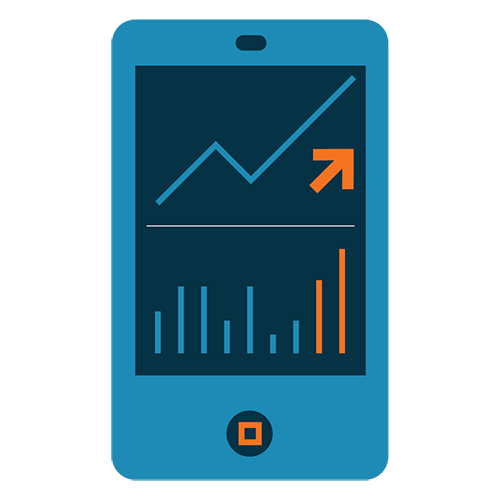Who: French Parliament
Where: France
When: 19 October 2020. The law will come into force six months after its official publication, which occurred on the 20th of October.
What happened:
The French Parliament adopted an Act on child ‘influencers, which will be officially published in the coming weeks. This new piece of legislation will regulate the commercial use of the image of children under 16 on online video sharing platforms.
Some young Youtubers count millions of subscribers. They sometimes publish several videos per week, therefore spending a lot of time on their influencer activity, with no time or hours limitations. The MPs pointed out that their activity could sometimes generate important incomes, which do not always benefit the child. This new law aims at addressing these issues, to avoid any form of undeclared work and to protect children financially and psychologically.
New protective status for influencers under 16
The law aligns the child influencers status with that of the the child actor or model.
The child will be deemed a professional, meaning an employee of the person or entity whose activity consists of making audio-visual records featuring him/her as a main subject, in order to broadcast them on video sharing platforms for profit. Child influencers will therefore benefit from the French labour code protective rules and their compensation will qualify as a salary. In addition (i) an administration authorisation will have to be sought before each shooting, except if the employer has obtained a license for its activities, and (ii) the child’s consent must also be obtained in writing if he or she is older than 13. In other words, child influencers having a for-profit activity must be declared workers.
Failure to comply with these rules will trigger the application of criminal sanctions: a jail sentence of up to five years and a criminal fine of up to €75,000 for an individual and €375,000 for a legal entity.
The law also aims at protecting children whose image is not broadcasted for profit but becomes viral and therefore generates a certain level of income (either directly or indirectly), or whose video(s) duration or number exceed(s) certain thresholds (which are yet to be defined). The child will be deemed a semi-professional and his or her parents or legal guardians will have to file an a posteriori declaration with the competent authority. The authority will then provide them with recommendations on the child’s hours and length of work and on the risks triggered by his or her influencer activity.
Child influencers’ remuneration
Whatever the child influencer status (professional or semi-professional), part of the direct or indirect income realised through the video broadcasting must be lodged on a separate deposit account, held by a public institution (Caisse des dépôts et des consignations), until the child reaches the age of majority or is emancipated.
Advertisers remunerating the child for their influencer services will have to:
- conduct the appropriate checks, either by requesting the provision of the administrative authorisation when the child is a professional influencer or by asking their parents if he/she meets the semi-professional status conditions, and
- when applicable, remit a share of the child’s remuneration directly on the account held by the public institution.
Failure to do so is punishable by a criminal fine of up to €3,750 for an individual and €18,750 for a legal entity.
Adoption of charters by video sharing platforms.
The first version of the draft bill provided that video sharing platform providers were responsible for identifying contents depicturing children under 16 and for providing them with information regarding the risks of having their image broadcasted on their services.
These obligations have been watered down; according to the adopted law, video sharing platforms will now have to adopt charters aiming at fighting against the unlawful image use of children under 16. The French Audiovisual broadcasting regulatory authority(CSA) will encourage the adoption of such charters and will publish periodical reports on their effectiveness.
Such charts will aim to:
- Inform users of the laws or regulations governing the broadcasting through the video sharing platform services of children under 16 image, and on the risks associated with such a broadcasting, including psychological risks;
- Help to inform and alert children under 16, with the help of minor protection associations, of (i) the consequences the broadcasting of their image on video sharing platforms can have on their privacy, or in terms of psychological or legal risks, and (ii) the steps they can take to protect their rights, their dignity, their physical or moral integrity.
- Promote the reporting by platform users of audio-visual content depicting minors under 16, which would violate the dignity or physical or mental integrity of the minors;
- Take any useful action to prevent the processing of minor personal data that is collected through the above-mentioned reporting for commercial purposes
(marketing, profiling, and to the purposes of behavioural targeting advertising); - Improve, in cooperation with child protection associations, the detection of audio-visual contents depicting minors under 16, which would violate the dignity or physical or mental integrity of those minors; and
- Ease the enforcement by minors of their right to have their personal data removed (i.e. their image, as detailed in section 3 above) and clearly and precisely inform them of the steps and conditions to enforce such a right.
Why this matters:
MPs have acknowledged the lack of legal framework for child influencers and intend to fill this legal vacuum with a view to protecting children. A new status of child influencer has been created on the basis of the labour and social protection granted to children in the entertainment sector, and video sharing platforms will have to implement new practices upon the law being enacted.











